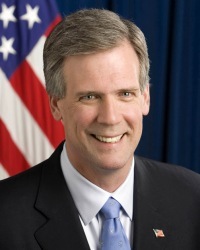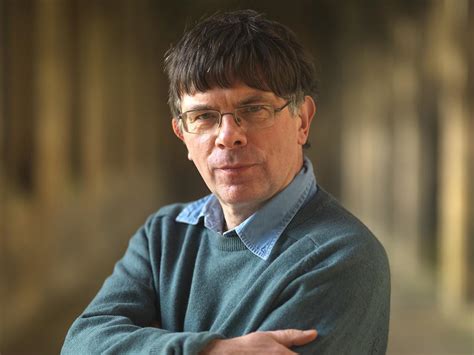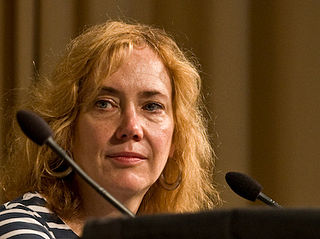Цитата Мориса Мерло-Понти
Наука манипулирует вещами и отказывается жить в них. Он создает свои собственные ограниченные модели вещей; оперируя этими показателями или переменными для осуществления любых преобразований, допускаемых их определением, оно сталкивается лицом к лицу с реальным миром только через редкие промежутки времени. Наука есть и всегда будет тем удивительно активным, изобретательным и смелым образом мышления, основная склонность которого состоит в том, чтобы относиться ко всему как к объекту вообще, как если бы оно ничего не значило для нас, но было предначертано для нашего собственного использования. .
Темы цитат
Активный
Всегда
Предвзятость
Смелое
определение
Эффект
Все
Лицом
к лицу
Фундаментальное
Общее
Дает
гениальные
интервалы
Ограниченная
жизнь
Создает
значимые
модели
Ничего
Объект
Только
действие
Наше
собственное
Разрешенное
Предопределенное
Редкое
Реальный
реальный мир
Наука
Реальный мир
Их
Вещи
Мышление
Хоть и
относись
к
нам
Использование
переменных
Способ
мышления
Каким бы ни
был
мир
чьей
воле
Связанные цитаты
Мы безмерно растрачиваем наши энергетические ресурсы и другое ценное сырье, как если бы их запасы были бесконечны. Мы должны даже столкнуться с перспективой изменить наш основной образ жизни. Это изменение будет произведено либо по нашей собственной инициативе планомерно и рационально, либо навязано нам с помощью хаоса и страданий неумолимыми законами природы.
Я узнал, что нет ничего более ужасного, чем иметь дело с предметами мертвеца. Вещи инертны: они имеют смысл только в зависимости от жизни, которая их использует. Когда эта жизнь заканчивается, вещи меняются, даже если они остаются прежними. […] они что-то говорят нам, стоя там не как объекты, а как остатки мысли, сознания, эмблемы одиночества, в котором человек приходит принимать решения о себе.
Наука подобна обществу и торговле, поскольку в своей основе опирается на веру. Здесь тоже есть вещи, которые мы не можем доказать, иначе нам нечего было бы доказывать. Наука занимается задним концом вещей, а не задним. Было бы ошибкой противопоставлять религию и науку в этом отношении и думать, что религия принимает все как должное, а наука выполняет только чистую работу, собирая и подправляя все незавершенные концы. Мы никогда не достигнем корней вещей в науке больше, чем в религии.
Весь смысл науки в том, что большая ее часть неопределенна. Вот почему наука захватывающая — потому что мы не знаем. Наука занимается вещами, которых мы не понимаем. Публика, конечно, воображает, что наука — это просто набор фактов. Но это не так. Наука — это процесс исследования, который всегда частичен. Мы исследуем, и мы обнаруживаем вещи, которые мы понимаем. Мы обнаруживаем вещи, которые, как мы думали, мы поняли, были неправильными. Вот как это делает прогресс.
Поэтический импульс отличен от идей о вещах или чувств к вещам, хотя он может их использовать. Это больше похоже на желание отделить часть своего опыта и создать ее самостоятельно, изолированный объект, чтобы никогда больше не беспокоить вас, по крайней мере, ненадолго. При отсутствии этого импульса ничего не шевелится.
Аналитическая машина могла бы воздействовать не только на числа, но и на другие вещи, если бы были найдены объекты, взаимные фундаментальные отношения которых могли бы быть выражены отношениями абстрактной науки об операциях и которые также должны были бы поддаваться адаптации к действию операционных обозначений и механизма машины. … Предположим, например, что фундаментальные отношения тональности звуков в науке о гармонии и музыкальном сочинении допускают такое выражение и адаптацию, машина может сочинять сложные и научные музыкальные произведения любой степени сложности или объема.
Бесконечная тоска; лицо, знакомое с детства, почти с рождения; тело, которое двигалось, как если бы оно было твоим собственным. Это были вещи, о которых вы никогда не говорили, вещи, на которые вы никогда не надеялись; вещи, в которых вы никогда не могли бы признаться. Вещи, за которые вы бы умерли, и от которых вы умрете.
Я согласен с тем, что наука — это лучший способ понять мир природы, и поэтому у нас есть основания верить тому, что лучшая наука говорит нам об объектах этого мира и отношениях между ними. Но это не означает, что мир природы — единственное, о чем мы можем иметь истинные убеждения. Статус материальных объектов как вещей, которые являются «реальными», зависит от их физических свойств, таких как вес, плотность и пространственно-временное положение. Для того чтобы быть реальными, таким вещам не требуется, помимо этих свойств, еще какого-то метафизического существования.
Одна из вещей, которые я люблю делать, это путешествовать по миру и смотреть на археологические памятники. Потому что археология дает нам возможность изучить прошлые цивилизации и увидеть, где они преуспели, а где потерпели неудачу. Используйте науку, чтобы, знаете ли, работать в обратном направлении и сказать: «Ну, правда, о чем они думали?»
Большинство людей не собирают вещи вместе. Геологи изучают поверхность земли и геологические явления. Метеорологи изучают погоду. Это не наука. Наука изучает все, что влияет на человека. Они должны быть вместе! Метеорологу трудно разговаривать с социологом, потому что они не понимают друг друга. Вы не можете преподавать науки «по крупицам»; вы должны собрать все это вместе. Наука — это способ мышления, способ делать выводы без вашего собственного мнения.









































